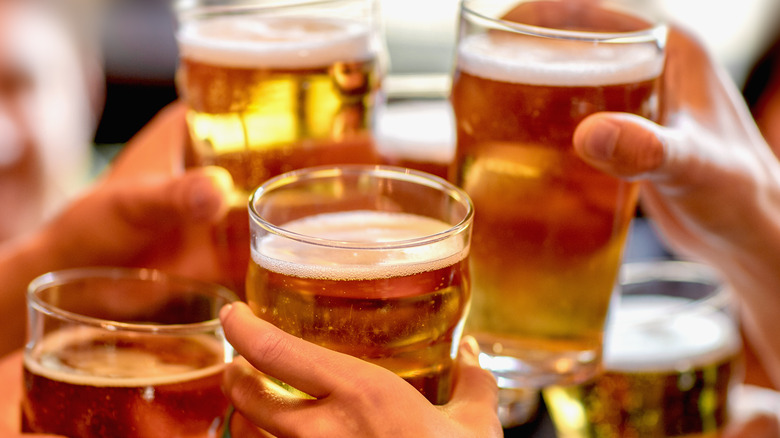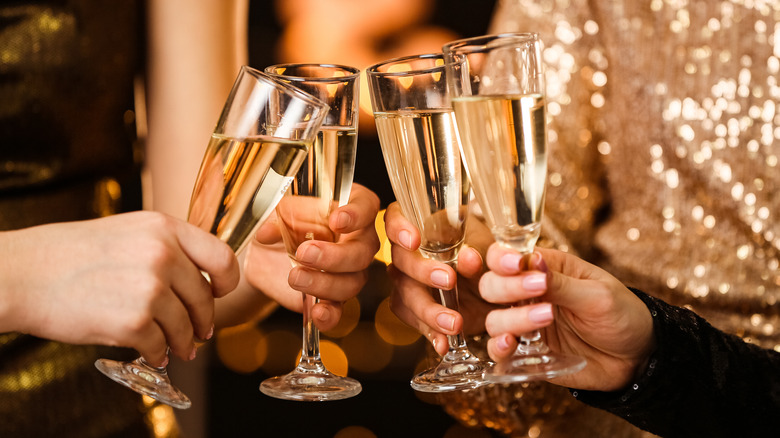The Real Reason We Clink Glasses Before Drinking
We'd like to propose a toast! It seems that more often than not, whenever there's something or someone to celebrate — or if we feel like gathering with friends and catching up over a few drinks, we are inclined to exclaim, "Cheers!" (or "Salut!," "¡Salud!," "Sláinte!," "À votre santé!," etc.) before we clink our glasses, cans, or mugs together prior to taking the first sip.
But what is the meaning behind this age-old drinking tradition — and when did people start partaking in it? As it turns out, history tells us that the act of clinking glasses before imbibing on a pint or stein of beer while watching the game, a delicate flute of champagne when midnight strikes on New Year's Eve, or a chic cocktail during a fancy dinner date has a fascinating meaning behind it. If you have ever wondered why it's customary (or even second nature) to tap your vessel with another person's, keep reading to learn the reported origins of this symbolic ritual.
Clinking glasses is a symbolic gesture of mutual trust
Believe it or not, clinking drinking glasses is a centuries-old practice. There are a few theories behind why we do it, all of which pay homage to days past. One theory, according to Farmers' Almanac, is that it enhances the senses. The high-pitched ringing sound gratifies the five main senses, thereby rounding off the drinking experience. Also, the physical touching of glasses symbolizes unity and camaraderie. Another convivial ideology dating back to the Medieval Ages claims that people clinked their glasses and cheered boisterously to ward off demons and evil spirits lurking nearby, reports The Daily Meal. In Germany, it's common tradition to bang mugs on the table and yell loudly to scare away said specters.
Many cultures throughout history have also believed that toasting was a way to avoid death by poisoning. It was common to poison somebody's drink to murder them. However, if each glass was filled to the brim and then clinked hard against one another, the poison would slosh and transfer from one to another. This gesture would ensure the drinks were uncontaminated and all parties were safe to be trusted.
By the way, why do we say "Cheers?" The exclamation "Cheers!" originates from the French term "chiere," which originally meant "face" or "head." Then, in the 18th century, it translated to "gladness." Today, of course, we say, "Cheers!" as a way of wishing good health and happiness to those in our presence. Cheers!

